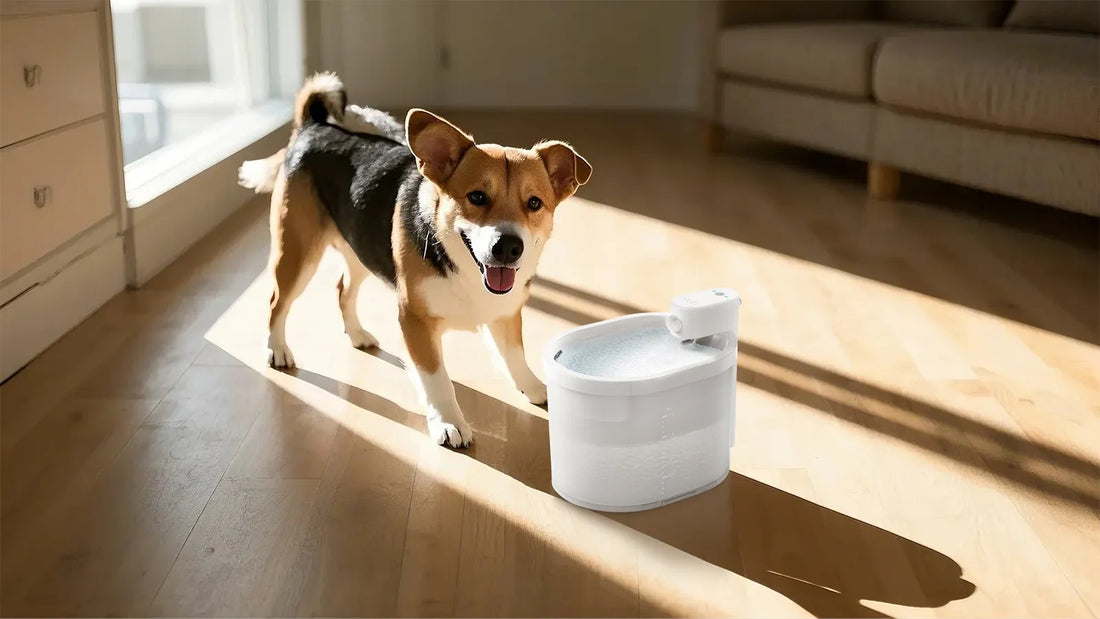As a cat owner, ensuring your feline friend stays hydrated is one of the most critical aspects of their care. Cats, like all living creatures, rely on water for essential bodily functions, but their hydration needs can be tricky to gauge. Understanding how much water a cat should drink daily can help you keep your pet healthy and prevent potential health issues.
Why Water is Crucial for Cats
Water plays a vital role in maintaining a cat's overall health. It aids in digestion, regulates body temperature, and supports kidney function. Cats are naturally less inclined to drink water compared to other animals, which can make it challenging to ensure they are adequately hydrated. This behavior stems from their ancestors, who primarily obtained moisture from their prey.
Factors Influencing a Cat's Water Intake
Several factors can affect how much water your cat needs daily. These include their age, size, diet, activity level, and environmental conditions. For instance, kittens and senior cats may have different hydration needs compared to adult cats. Similarly, cats on a dry food diet may require more water than those on a wet food diet, as wet food contains higher moisture content.
How Much Water Should a Cat Drink Daily?
On average, a cat should drink approximately 3.5 to 4.5 ounces of water per 5 pounds of body weight each day. This means a 10-pound cat would need around 7 to 9 ounces of water daily. However, this is just a general guideline, and individual needs may vary. Monitoring your cat's water intake and observing their behavior can help you determine if they are drinking enough.
Signs of Dehydration in Cats
Dehydration can be dangerous for cats and may lead to serious health complications. Common signs of dehydration include lethargy, dry gums, loss of appetite, and sunken eyes. If you suspect your cat is dehydrated, it's essential to seek veterinary care immediately. Providing fresh water and encouraging your cat to drink can help prevent dehydration.
Tips to Encourage Your Cat to Drink More Water
If your cat isn't drinking enough water, there are several strategies you can try to encourage them. Offering fresh, clean water daily is crucial. Some cats prefer running water, so a cat water fountain might be a good investment. Placing multiple water bowls around your home can also make it easier for your cat to access water. Additionally, incorporating wet food into their diet can help increase their overall moisture intake.
The Role of Diet in Hydration
A cat's diet significantly impacts their hydration levels. Wet food, which contains up to 80% water, can be an excellent way to ensure your cat stays hydrated. On the other hand, dry food contains only about 10% water, so cats on a dry food diet may need to drink more water to compensate. Balancing your cat's diet with a mix of wet and dry food can help meet their hydration needs.
Monitoring Your Cat's Water Intake
Keeping track of how much water your cat drinks daily can help you identify any changes in their hydration habits. Sudden increases or decreases in water intake can be a sign of underlying health issues. If you notice any significant changes, it's essential to consult your veterinarian to rule out potential problems.
Health Conditions Affecting Water Consumption
Certain health conditions can influence how much water your cat drinks. For example, kidney disease, diabetes, and hyperthyroidism can lead to increased thirst and water intake. On the other hand, conditions like dental issues or gastrointestinal problems may cause a decrease in water consumption. Regular veterinary check-ups can help detect and manage these conditions early.
Creating a Hydration-Friendly Environment
Making your home more conducive to your cat's hydration needs can encourage them to drink more water. Ensure their water bowls are clean and placed in quiet, accessible locations. Some cats prefer wide, shallow bowls, while others may enjoy drinking from glasses or cups. Experimenting with different types of containers can help you find what works best for your cat.
The Importance of Fresh Water
Cats are known for their picky nature, and this extends to their water preferences. Stale or contaminated water can deter them from drinking. Regularly changing the water in their bowls and cleaning the containers can ensure your cat has access to fresh, appealing water. Adding ice cubes or chilling the water can also make it more enticing for some cats.
When to Seek Veterinary Advice
If you're concerned about your cat's water intake or notice any unusual behavior, it's always best to consult your veterinarian. They can provide personalized advice based on your cat's specific needs and health status. Early intervention can prevent minor issues from developing into more serious health problems.
Keeping your cat hydrated is essential for their well-being and longevity. By understanding their hydration needs and taking proactive steps to encourage water consumption, you can help ensure your feline friend stays healthy and happy. Remember, a well-hydrated cat is a thriving cat!

![[🎃Halloween Sale]UAHPET Stainless Steel Self-Cleaning Cat Litter Box](http://www.uahpet.com/cdn/shop/files/1-cat-litter-box.jpg?v=1761890851&width=1600)












